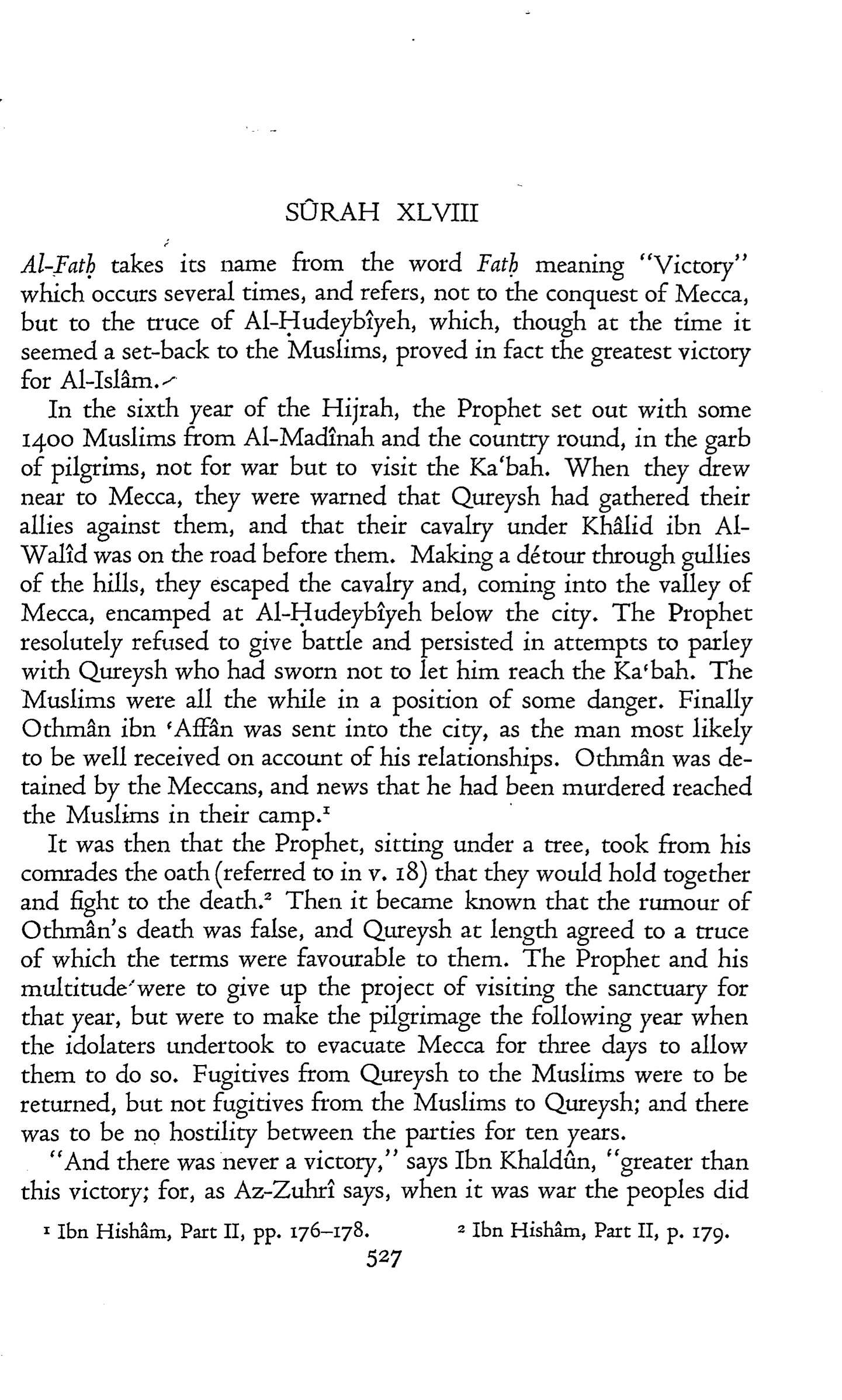Marmaduke Pickthall, The Meaning of The Glorious Koran. An Explanatory Translation (1930)
SÛRAH XLVIII
Al-Fatḥ takes its name from the word Fatḥ meaning “Victory” which occurs several times, and refers, not to the conquest of Mecca, but to the truce of Al-Ḥudeybîyeh, which, though at the time it seemed a set-back to the Muslims, proved in fact the greatest victory for Al-Islâm.
In the sixth year of the Hijrah, the Prophet set out with some 1400 Muslims from Al-Madînah and the country round, in the garb of pilgrims, not for war but to visit the Ka‘bah. When they drew near to Mecca, they were warned that Qureysh had gathered their allies against them, and that their cavalry under Khâlid ibn Al-Walîd was on the road before them. Making a détour through gullies of the hills, they escaped the cavalry and, coming into the valley of Mecca, encamped at Al-Ḥudeybîyeh below the city. The Prophet resolutely refused to give battle and persisted in attempts to parley with Qureysh who had sworn not to let him reach the Ka‘bah. The Muslims were all the while in a position of some danger. Finally Othmân ibn ‘Affân was sent into the city, as the man most likely to be well received on account of his relationships. Othmân was detained by the Meccans, and news that he had been murdered reached the Muslims in their camp.1
It was then that the Prophet, sitting under a tree, took from his comrades the oath (referred to in v. 18) that they would hold together and fight to the death.2 Then it became known that the rumour of Othmân’s death was false, and Qureysh at length agreed to a truce of which the terms were favourable to them. The Prophet and his multitude were to give up the project of visiting the sanctuary for that year, but were to make the pilgrimage the following year when the idolaters undertook to evacuate Mecca for three days to allow them to do so. Fugitives from Qureysh to the Muslims were to be returned, but not fugitives from the Muslims to Qureysh; and there was to be no hostility between the parties for ten years.
“And there was never a victory,” says Ibn Khaldûn, “greater than this victory; for, as Az-Zuhrî says, when it was war the peoples did
1 Ibn Hishâm, Part II, pp. 176–178.
2 Ibn Hishâm, Part II, p. 179.
